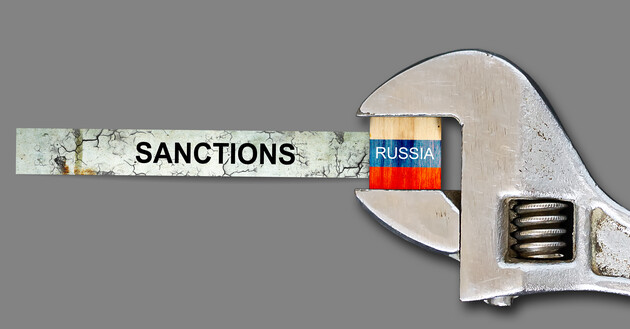It's no secret that, apart from traditional offshore jurisdictions with minimal controls and reporting (various islands like the British Virgin Islands or the Bahamas), there are quite respectable countries where billionaires keep their fortunes for decades without worrying about their fate. One examples of such a country is Switzerland, which recently reported on another freezing of Russian assets. Unfortunately, victory cannot be claimed here.
Back in September 2023, Bloomberg reported that many rich Russian people managed to withdraw about $50 billion to Russia or other aggressor-leaning jurisdictions. Already after the “mass exodus,” Switzerland boasted of an increase in the amount of frozen assets of Russians to $8.8 billion — only a few hundred thousand more than last year.
At the same time, the increase in frozen assets is associated with the addition of 300 individuals and 100 companies and organizations to the list of sanctions over the past year. Furthermore, the updated amount includes income from cash deposits, bonds, stocks, as well as property and luxury cars. If we consider that we are speaking of hundreds of new sanctions – and investment income – the Swiss sanctions aimed at supporting Ukraine in general look very modest.
Moreover, the Swiss State Secretariat for Economic Affairs (SECO), which supervises the sanctions, has added that there may be a revaluation of the amount of funds. The data is currently preliminary. This is related to the process of additional sanctions on Russians or the lifting of relevant restrictions. Then SECO went on to add that a more accurate amount would be announced in the second quarter of 2024.
Be that as it may, it is worth mentioning additional financial restrictions applied to Russians in Switzerland. After Russia's full-scale invasion of Ukraine, Switzerland barred banks from taking more than 100,000 CHF (about $106,000) from Russians and said that all existing deposits must be reported to the State Secretariat for Economic Affairs by early June. A total of 123 Russian citizens or organizations notified the authority of 7,548 “business relations” with assets worth 46.1 billion CHF, SECO said. Bern also blocked the movement of foreign currency assets worth 7.4 billion CHF belonging to the Bank of Russia.
Although there is no official confirmation from Swiss public authorities, according to preliminary estimates by Swiss bankers, financial institutions in this country hold at least 150 billion CHF in Russian assets.
It is therefore clear that the frozen assets of several billion CHF are a drop in the ocean. The head of SECO's bilateral economic relations department has confirmed the same.
And let's be honest: Switzerland is rightly criticized for being soft on sanctioning the Russians. In particular, in May of this year, the accounts of the fertilizer company EuroChem Group AG, founded by billionaire Andrey Melnichenko, were unfrozen. He relinquished his beneficiary rights in a trust that holds EuroChem shares through a holding company, leaving his wife as its beneficiary.
Maybe there is someone in Switzerland who needs glasses? Or will the ambassador of Ukraine in this country, Iryna Venediktova, finally get down to work?
Let me remind you that the same oligarch Melnichenko compared sanctions to a nuclear attack on Hiroshima and defended Putin. At the same time, it is so interesting that he immediately filed a lawsuit challenging the sanctions the European Union imposed on him in March.
There were also statements that the total amount of money of Russian individuals and legal entities stored in Swiss banks stood at about $48.15 billion. This was stated in SECO. And then the Swiss Bankers Association calculated in March 2022 that the real figure was probably much higher and reached as much as $213 billion.
What will be done with this money? Judging by the pace of sanctioning, one can easily imagine the outcome. No one is in a hurry to transfer even the already blocked assets to Ukraine.
During his visit to our country last month, Swiss President Alain Berset promised to step up support for Ukraine and even discussed using the proceeds from frozen Russian assets to help rebuild Ukraine. But will these statements be acted upon?
It is to be recalled that the European Commission is now working out a proposal to combine part of the profits received from frozen state assets of Russia to help Ukraine and its post-war reconstruction. Switzerland is even participating in the discussion of the future mechanism, but is still undecided whether it will ultimately support this proposal of the European Commission.
A Ukrainian initiative in this process is glaringly missing. Although we are aware better than anyone that any amount of funds or assets frozen due to the full-scale intervention of the Russian Federation in Ukraine must be transferred through a specially developed mechanism for the reconstruction of our state. We at Trap Aggressor have emphasized this repeatedly. However, two years into the war, things haven’t budged an inch.
Lastly, the European Union has finally approved the 12th sanctions package, which, among other things, for the first time includes the possibility of confiscating the financial assets of Russian legal entities or individuals for the purpose of further compensation payments to European companies whose Russian property has become the property of the state or Russian companies. Let me repeat that: not to compensate Ukraine, but to reserve the opportunity to pay European companies the funds they could have lost due to “expropriation” in the Russian Federation.
It’s well thought, what else to say – probably only that after two years of war, the Europeans still haven’t punished Russia properly for the full-scale invasion. Why? The answer is simple. The euro is one of the freely convertible currencies in which other countries also hold reserves, including satellite states of the Putin regime, direct and indirect alike. As a result, no one wants to “lose this market” for the formation of euro reserves now. God forbid that all of the authoritarian regimes should switch to reserves in Chinese yuan, which Russia has already done.
